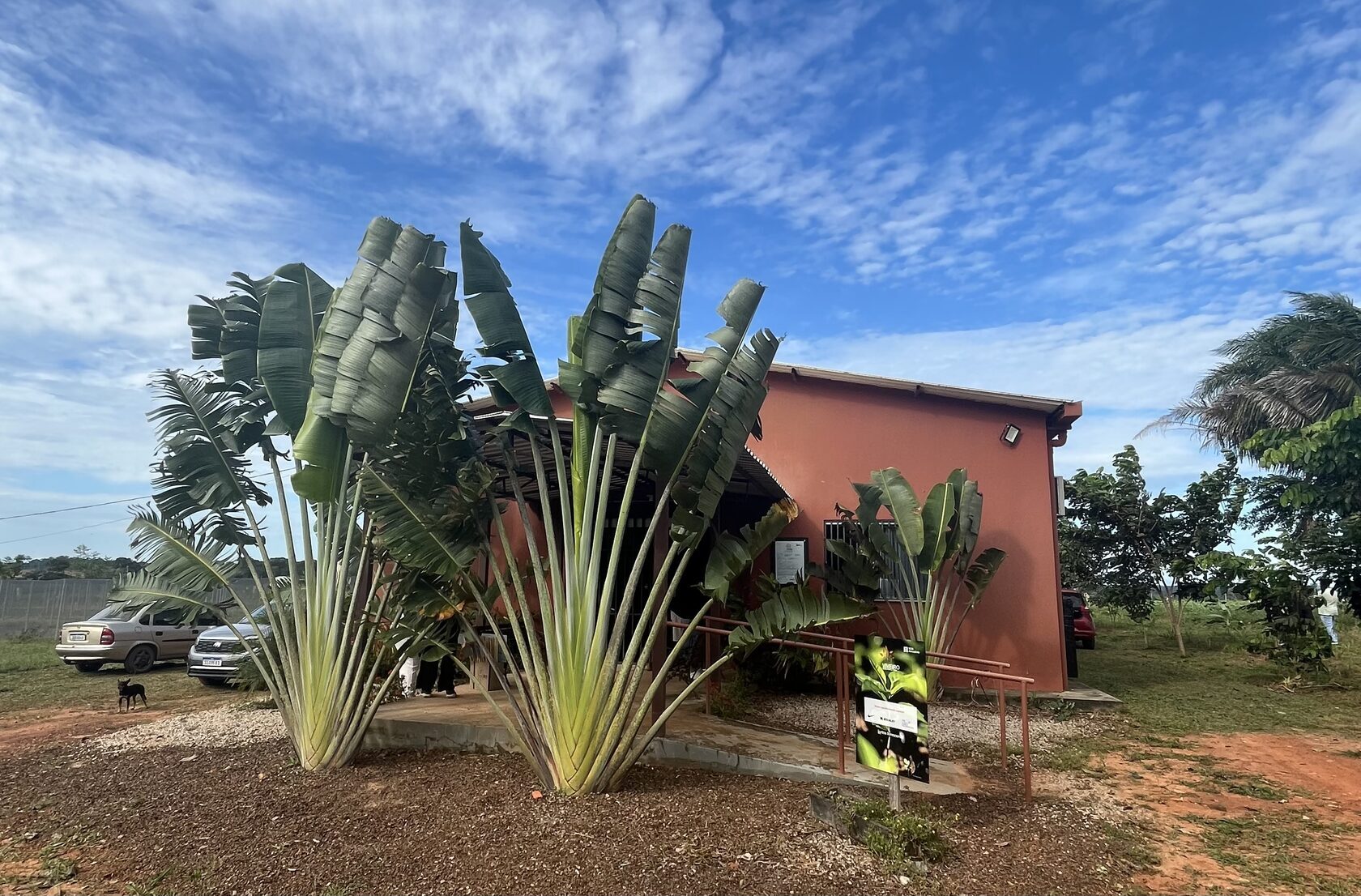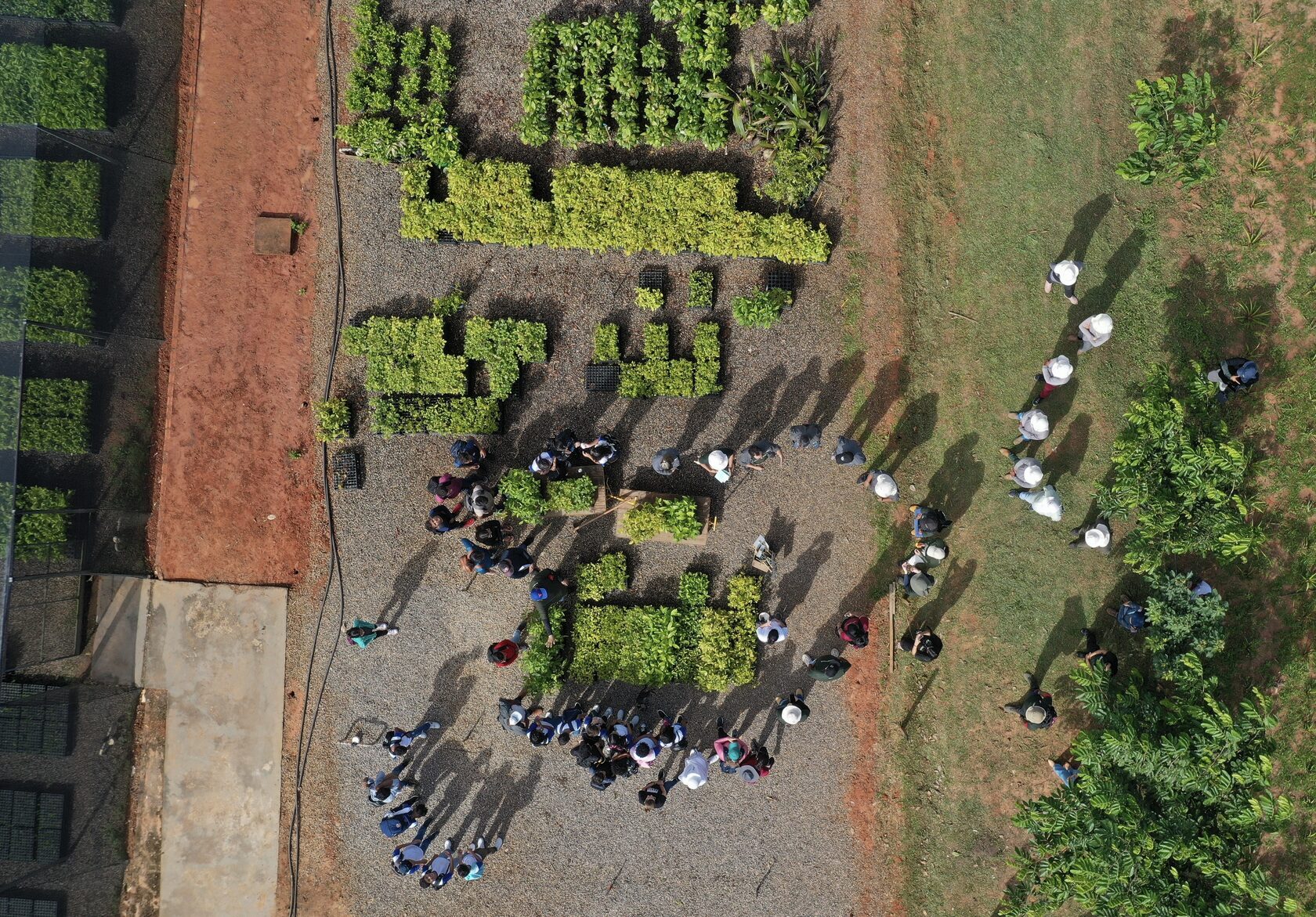As part of an initiative promoted by Soul Amazônia, the environmental awareness campaign of SOS Amazônia, more than 500 native saplings were planted in an area previously used as grazing land. On March 28, 2025, the saplings were cultivated at the NGO’s plant nursery located in Capixaba, Acre, which produces native forest and agroforestry seedlings. For the reforestation, eight species were selected: Brazilian cherry tree (jatobá), mahogany (mogno), yellowwood (amarelão), Brazil nut tree (castanheira), trumpet tree (ipê), copaiba (copaíba), samauma (samaúma), and rubber tree (seringueira).

More than 50 people joined the initiative and helped plant the saplings in their cradles. Participants included students from Nair Sombra School; influencer Maxine Silva from Acre; journalist Aline Rocha, representing the Almanacre program on Rede Amazônica; tour guide Tássio Fúria; influencer Daniel Cruz; and Rayssa Alves, a representative of the brand Made in Acre. In addition, technicians and staff from SOS Amazônia played a key role, guiding participants on best farming practices throughout the event.
This was the first community farming initiative promoted by the Soul Amazônia campaign, which was created to bring together people committed to conserving and preserving the Amazon. “When someone donates, they help maintain the forest, conserve biodiversity, and restore degraded areas,” explains Bleno Caleb, communications officer for SOS Amazônia.
This was the first community farming initiative promoted by the Soul Amazônia campaign, which was created to bring together people committed to conserving and preserving the Amazon. “When someone donates, they help maintain the forest, conserve biodiversity, and restore degraded areas,” explains Bleno Caleb, communications officer for SOS Amazônia.

In the morning, all the saplings were successfully planted, thanks in large part to the help of 30 eighth-grade students who participated in the activity and were able to put their classroom learning into practice. “We learn a lot in school about the environment and about the Earth where we live. We should take good care of it, since all these trees help us exist,” says student Kailyn Nascimento.

The SOS Amazônia Plant Nursery
Inaugurated in 2023, the SOS Amazônia Plant Nursery aims to support the forest restoration program Faça Florescer Floresta, with the capacity to produce 450,000 saplings annually. The facility was built with support from partners such as the British foundation The Caring Family, Stanley, and Nike, who contributed to the acquisition and legalization of the land, as well as the purchase of essential equipment.
Among the species cultivated in the nursery are forest trees (andiroba, Brazil nut, copaiba, cumaru, ipê, mahogany, mulateiro), fruit trees (acerola, soursop, cacao, coffee, ingá), and palms (açaí, buriti, jaci, and jarina). All of these are types of seedlings produced on-site and intended for the restoration of degraded areas.
Álisson Maranho, technical secretary of SOS Amazônia, explains that restoration efforts are taking place in nearly all municipalities in Acre, benefiting around a thousand families who work with the NGO. “Producing and planting saplings generates income, brings ecological benefits, protects the soil, and helps restore local fauna and biodiversity. Moreover, it is a significant social project,” he emphasizes.
Inaugurated in 2023, the SOS Amazônia Plant Nursery aims to support the forest restoration program Faça Florescer Floresta, with the capacity to produce 450,000 saplings annually. The facility was built with support from partners such as the British foundation The Caring Family, Stanley, and Nike, who contributed to the acquisition and legalization of the land, as well as the purchase of essential equipment.
Among the species cultivated in the nursery are forest trees (andiroba, Brazil nut, copaiba, cumaru, ipê, mahogany, mulateiro), fruit trees (acerola, soursop, cacao, coffee, ingá), and palms (açaí, buriti, jaci, and jarina). All of these are types of seedlings produced on-site and intended for the restoration of degraded areas.
Álisson Maranho, technical secretary of SOS Amazônia, explains that restoration efforts are taking place in nearly all municipalities in Acre, benefiting around a thousand families who work with the NGO. “Producing and planting saplings generates income, brings ecological benefits, protects the soil, and helps restore local fauna and biodiversity. Moreover, it is a significant social project,” he emphasizes.
